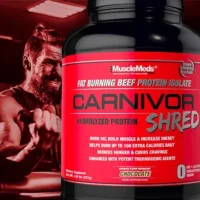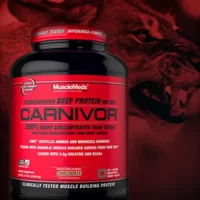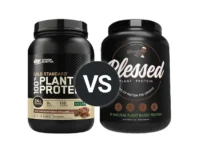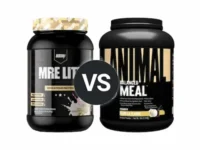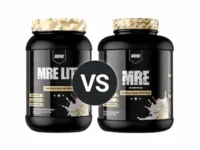Knowledge BaseYou're Questions Answered
Is Carnivor beef protein better than whey?
Determining whether Carnivor beef protein is a better option for you than whey protein depends on various factors, including individual nutritional needs, dietary preferences, and fitness goals. Both types of protein have their own unique benefits and characteristics, making them suitable for different purposes.
Nutritional Profile
Carnivor Beef Protein: Carnivor is a hydrolyzed beef protein isolate, meaning it is derived from beef and processed to remove fats and carbohydrates. It provides a highly concentrated source of protein with minimal fats and carbs. Carnivor beef protein is also rich in creatine, which can help enhance muscle strength and performance1. Additionally, it is free from lactose, making it a suitable option for individuals with lactose intolerance.
Whey Protein: Whey protein, derived from milk, is available in various forms such as whey protein concentrate, isolate, and hydrolysate. Whey protein is known for its high biological value and rapid digestion, making it an excellent choice for post-workout recovery2. It contains all essential amino acids and is particularly high in branched-chain amino acids (BCAAs), which are crucial for muscle protein synthesis and repair3.
Digestibility and Absorption
Carnivor Beef Protein: Carnivor is hydrolyzed, meaning it is pre-digested and broken down into smaller peptides for easier absorption. This can make it a good option for individuals who experience digestive issues with other protein sources4.
Whey Protein: Whey protein is also quickly absorbed, especially whey protein isolate and hydrolysate, which are processed to remove most fats and lactose, resulting in a faster digestion rate. Whey protein’s rapid absorption makes it ideal for post-workout consumption to quickly deliver amino acids to muscles5.
Additional Benefits
Carnivor Beef Protein: One of the standout features of Carnivor is its inclusion of creatine, which supports increased muscle strength, power, and recovery. It also boasts being free from common allergens such as dairy, soy, and gluten, making it suitable for those with specific dietary restrictions1.
Whey Protein: Whey protein has been extensively studied and is well-known for its effectiveness in promoting muscle protein synthesis, reducing muscle soreness, and enhancing recovery. It also supports immune function due to its immunoglobulin content6.
So what to choose?
Ultimately, whether Carnivor beef protein or whey protein is better depends on your individual needs. If you are lactose intolerant or have dietary restrictions, Carnivor may be a better choice due to its allergen-free formulation and added creatine. On the other hand, whey protein is a well-researched option with proven benefits for muscle growth and recovery. We would generally give preference to whey as the better source, unless whey cannot be used for specific dietary reasons. Consulting with a healthcare provider or nutritionist can help determine which protein supplement aligns best with your fitness goals and dietary requirements.
- Jäger, R., Kerksick, C. M., Campbell, B. I., Cribb, P. J., Wells, S. D., Skwiat, T. M., ... & Antonio, J. (2017). International Society of Sports Nutrition Position Stand: Protein and exercise. Journal of the International Society of Sports Nutrition, 14(1), 20.
- Hoffman, J. R., & Falvo, M. J. (2004). Protein–which is best? Journal of Sports Science & Medicine, 3(3), 118.
- Phillips, S. M., & Van Loon, L. J. C. (2011). Dietary protein for athletes: From requirements to optimum adaptation. Journal of Sports Sciences, 29(sup1), S29-S38.
- Escalante, Y., García-Hermoso, A., Saavedra, J. M., & Domínguez, A. M. (2011). Improvements in cardiorespiratory fitness, blood pressure, and lipid profile associated with physical exercise in the overweight and obese: A systematic review and meta-analysis. Archives of Internal Medicine, 171(7), 676-686.
- Boirie, Y., Dangin, M., Gachon, P., Vasson, M. P., Maubois, J. L., & Beaufrère, B. (1997). Slow and fast dietary proteins differently modulate postprandial protein accretion. Proceedings of the National Academy of Sciences, 94(26), 14930-14935.
- Haug, A., Hostmark, A. T., & Harstad, O. M. (2007). Bovine milk in human nutrition–a review. Lipids in Health and Disease, 6(1), 25.

Your Answer
We are a participant in the Amazon Services LLC Associates Program, an affiliate advertising program designed to provide a means for us to earn fees by linking to Amazon.com and affiliated sites.
